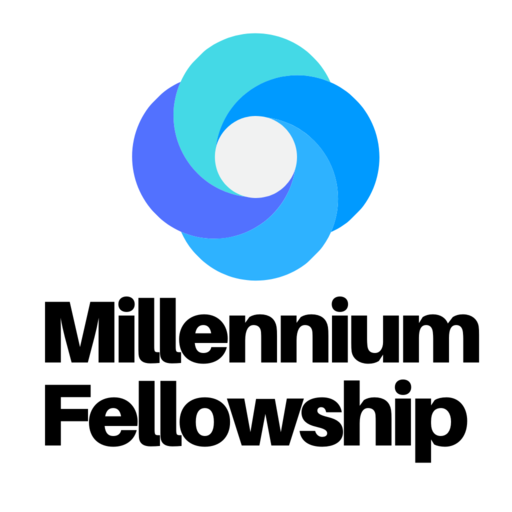Each year, members of the Tech community showcase their drive and ambition through their involvement in a variety of academic programs. One such project that Tech students are participating in is the prestigious Millennium Fellowship.
Founded in 2013 by the Millennium Campus Network (MCN) and later joined by the United Nations Academic Impact (UNAI) in 2018, the fellowship aims to advance leadership on college campuses. It also hopes to promote the sustainability principles that the United Nations (UN) has established.
Shannon Dobranski, the director of Pre-Graduate and Pre-Professional Advising (PGPP) at the Institute, said that “the Millennium Fellowship is a great opportunity for students interested in sustainability and social justice.”
She continued on to say that “it provides leadership training for recipients who then use that to accelerate their own projects and to advance student organizations. [It] connects students with shared interests and facilitates collaboration.”
According to the MCN, “30,000 young leaders applied to join the Class of 2022 on 2,400+ campuses across 140+ nations. 200+ campuses worldwide (just 8%) were selected to host the 3,000+ Millennium Fellows.”
From that number, 10 students from the Institute were chosen to participate in the project and nine students accepted the offer.
These individuals include Pratul Amineni (BMED, ‘25), Eyas Ayesh (ME ‘23), Haaris Jilani (BMED ‘24), Shania Khatri (BIOS, ‘22), Velin Kojouharov (ME ‘24), Michelle Seeler (BIOS ‘24), Athena Verghis (ENVE, ‘23), Alix Wagner (BMED ‘24) and Mandy Zhu (BIOS ‘23).
Overall, in the last four years, 62 Tech students have received Millennium Fellowships.
The application process is lengthy and complex, consisting of two separate rounds applicants must pass through.
Recipient Michelle Seeler recounted her experience and said that, “[they must] give a brief outline of [their] project to pass the first round and what sustainability goal it encompasses.”
The second round is much more in-depth, as they have to provide a detailed plan of their project and receive an advisor’s recommendation letter.
The requirements for the project are loose, with only two major criteria.
It must be time-bound, meaning that it is purposeful and contributes positively to the community. Moreover, the project must also address at least one Sustainable Development Goal and one UNAI principle.
For instance, the MCN says appropriate examples of this are “running a social enterprise” or “innovative research that concretely advances UN goals.”
Seeler says that, for her application, she submitted her pre-existing service project that “aims to decrease maternal morbidities within postpartum care such as through cardiovascular disease and other disease risks.”
She continues on to say that “by working with the Emory School of Medicine, [she has] a team of current medical students, doctors in the field and public health researchers working together to create the most optimal resource for postpartum patients to mitigate postpartum risks.”
Seeler strives to make her resources easily understood by all educational backgrounds.
Following their submission and acceptance, fellowship recipients take part in a semester-long program that is allocated into three separate sections.
The first of the three parts involves the convening of the nine members. According to the MCN, they will come together on campus at least eight times from the months of August to November.
The purpose of these meetings, otherwise known as Fellowship sessions, is to “[cultivate] core values, [hone] hard and soft skills and [give] peer-to-peer feedback.”
The second part emphasizes challenging one another. The nine members will utilize their meeting times to “develop a plan of action for their sessions together, meet to exchange best practices and think bigger.”
In other words, they will provide their peers with constructive feedback on their projects. However, some groups opt to take collective action opposed to working on an individual initiative.
Lastly, when the cohort has fulfilled both goals they and the MCN and UNAI have assigned to them, their work is celebrated. Each member is granted a certificate of recognition.
In participating in this project, people create an impact that goes far beyond the allotted duration of the Millennium Fellowship.
According to the MCN, “75% of alumni are now working in social impact careers.”
Furthermore, Dobranski says that “many Millennium Fellows go on to apply for other post-graduate fellowship opportunities that can take them to other parts of the world or into graduate education that will allow them to pursue their interest in sustainability on an even larger scale.”
Overall, the participation of Tech students in this project has positive implications for the individuals and the community. The Millennium Fellowship is a valuable opportunity for Seeler for numerous reasons.
“[It] allows [me] to take a deeper look into [my] own perspectives of service and truly learn how to most effectively facilitate [my] service plans to benefit [the] community,” Seeler said.
Seeler also sees opportunities for leadership development.
“I hope that, through this education, I will become a better leader for those around [me] as I collaborate in volunteer projects, and that through [my] future service endeavors, [I will be] facilitating projects that will truly have a long term impact on the public,” Seeler said.
For more information on the fellowship, refer to millenniumfellows.org/fellowship.
To learn how to apply, students should reach out and schedule an appointment with the Prestigious Fellowships Advisor Karen Mura at [email protected].
